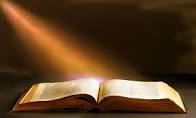Bible Notes
Psalm 11
[Psa 11:1-7 NET] 1 In the LORD I have taken shelter. How can you say to me, "Flee to a mountain like a bird!
2 For look, the wicked prepare their bows, they put their arrows on the strings, to shoot in the darkness at the morally upright.
3 When the foundations are destroyed, what can the godly accomplish?"
4 The LORD is in his holy temple; the LORD's throne is in heaven. His eyes watch; his eyes examine all people.
5 The LORD approves of the godly, but he hates the wicked and those who love to do violence.
6 May the LORD rain down burning coals and brimstone on the wicked! A whirlwind is what they deserve!
7 Certainly the LORD is just; he rewards godly deeds; the upright will experience his favor.
---
It’s difficult to determine the historical background of this psalm. David was often in danger, whether in the court of Saul (1 Sam. 19:1), in the wilderness being chased by Saul, or during the rebellion of Absalom, his son. David did flee from Saul’s court and hide in the wilderness for perhaps ten years, and he did abandon Jerusalem to Absalom and take refuge over the Jordan, both of which proved to be wise moves. But during the crisis described in this psalm, David did not flee his post but remained on duty, trusting the Lord to protect him; and He did. Whatever the crisis, the psalm teaches us that we must choose between fear (walking by sight) or trust (walking by faith), listening to human counsel or obeying the wisdom that comes from the Lord (James 1:5).
PSALM 11
- The people of Israel gave the Lord the glory because of His love and faithfulness. Read 1 Corinthians 10:32. What specific kinds of deeds can you perform today to glorify the Lord?
- Why is idolatry so tempting? What idols tempt you? How does worshiping God alone transform us?
- Which of the following opposites best differentiates between unbelievers and believers: irreligious/religious; ignorant/enlightened; dead/alive? Defend your choice.
Psalm 11
- Having to choose between fear and faith, David chose faith. What fears must your faith overcome? What Bible promise gives you great comfort when you feel threatened?
David uses three images to describe the judgment that God has prepared for the wicked. First, he saw fire and brimstone descend on them, such as the Lord sent on Sodom and Gomorrah (v. 6a; Gen. 19:24; see also Isa. 30:33; Rev. 9:17). Then he beheld a terrible storm destroying the enemy, a “scorching wind” such as often blew from the desert (v. 6b niv). David used the image of the storm in his song about his deliverance from his enemies and King Saul (18:4-19). The third image is that of a poisonous potion in a cup (v. 6c kjv and nasb). “Drinking the cup” is often a picture of judgment from the Lord (75:8; Isa. 51:17, 22; Jer. 25:15-17; Rev. 14:10; 16:19; 18:6). On the Lord’s hatred of evil and violent people, see Psalm 5:5.
What does God have planned for His own people? “The upright will behold His face” (v. 7 nasb; see 17:15; 1 John 3:1-3.) To “see the face” means to have access to a person, such as “to see the king’s face” (2 Sam. 14:24). For God to turn His face away is to reject us, but for Him to look upon us with delight means He is going to bless us (Num. 6:22-27). When Jesus returns, those who have rejected Him will be cast “away from the presence of the Lord and from the glory of his power” (2 Thess. 1:8-10; Matt. 7:21-23), while His own children will be welcomed into His presence (Matt. 25:34).
